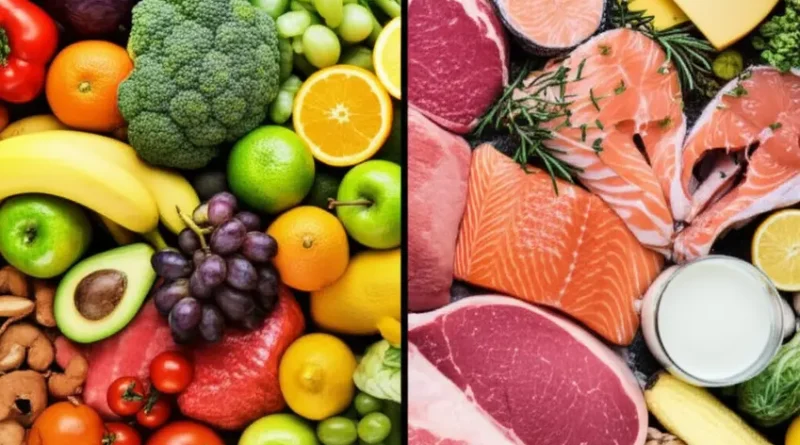Plant-Based vs. Animal-Based Diets: Which One is Better?
When it comes to nutrition, the conversation around diets often boils down to a debate between plant-based and animal-based options. Each has its own set of proponents, health benefits, and potential drawbacks. If you’re wondering which one might be better for you, it’s crucial to consider various factors including health outcomes, environmental impacts, and personal ethics.
First off, let’s break down what each diet entails. A plant-based diet primarily consists of foods derived from plants, which includes fruits, vegetables, grains, nuts, and seeds. This doesn’t mean that those following a plant-based diet completely avoid animal products, but the emphasis is largely on plant foods. On the other hand, an animal-based diet includes meat, fish, dairy, and eggs, often focusing on whole or minimally processed forms of these foods.
Health Aspects
The health benefits of plant-based diets are well-documented. Studies have shown that individuals following a well-planned plant-based diet tend to experience lower rates of heart disease, high blood pressure, type 2 diabetes, and certain types of cancer. One factor contributing to these health benefits is the higher intake of dietary fiber, which is more prevalent in plant foods. Fiber aids digestion, promotes satiety, and helps in weight management.
Moreover, plant-based diets generally offer higher vitamins and phytonutrients that are beneficial to health, such as vitamins C and E, and various antioxidants. However, it’s important to note that a plant-based diet can also be low in key nutrients such as vitamin B12, iron, omega-3 fatty acids, and protein if not carefully planned.
Animal-Based Diet Benefits
On the flip side, an animal-based diet is often touted for its high protein content and bioavailable nutrients. Animal products are significant sources of essential amino acids, vitamin B12, vitamin D, heme iron, and omega-3 fatty acids. These nutrients are often found in forms that are easier for the body to absorb compared to plant sources. For example, the body absorbs heme iron, found in meat, more efficiently than non-heme iron found in plant foods.
Some proponents of an animal-based diet argue that it can lead to better muscle recovery and support physical performance, particularly for those engaged in high-intensity training and bodybuilding. Additionally, many people find it easier to feel satiated and energized when consuming sufficient amounts of animal proteins and fats.
Environmental and Ethical Considerations
Beyond health, environmental and ethical considerations also play a significant role in the plant-based vs. animal-based debate. Plant-based diets generally have a lower carbon footprint compared to diets rich in animal products. The livestock industry is one of the main contributors to greenhouse gas emissions, deforestation, and water use. In contrast, plant-based farming tends to require less land and water and can contribute positively to soil health if managed sustainably.
Ethically, many people opt for plant-based diets to avoid the suffering of animals raised for food. Concerns about factory farming practices, animal welfare, and the environmental impacts of livestock farming have driven many towards vegetarian and vegan lifestyles.
Individual Needs and Preferences
Ultimately, the decision between a plant-based and animal-based diet often comes down to individual needs, preferences, and lifestyle choices. Some may thrive on a plant-based diet, experiencing increased energy and improved health metrics, while others may find that they feel better when they include animal products. It’s essential for anyone considering a major dietary shift to be mindful of their nutritional requirements and overall well-being.
Additionally, it’s important to consider the quality of the food rather than just the type. Both plant and animal-based diets can be healthy or unhealthy, depending on the foods chosen. Whole, minimally processed foods should be at the forefront of any dietary approach.
For those contemplating the switch to a plant-based diet, it’s a good idea to consult with a healthcare provider or a registered dietitian. This can ensure that nutrient needs are met and potential deficiencies are addressed. Meanwhile, those inclined towards an animal-based diet should consider balancing it with plenty of fruits, vegetables, and whole grains for optimal health.
In conclusion, there’s no definitive answer to which diet is ‘better.’ Both plant and animal-based diets have their own sets of advantages and disadvantages, and the best choice depends on individual health goals, ethical considerations, and personal preferences. A balanced approach that prioritizes whole foods from both categories may well provide the best of both worlds.

